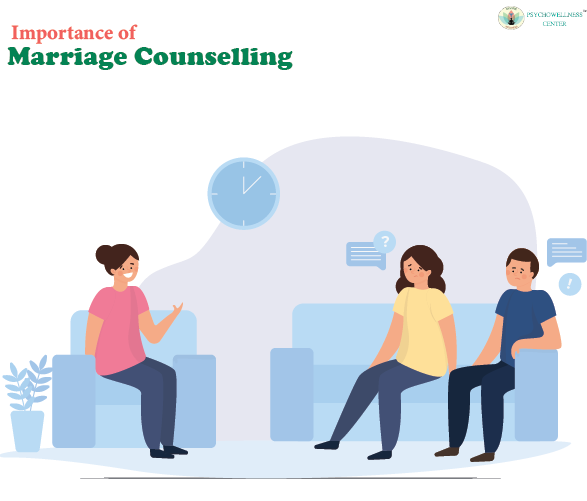Ways to Tackle Career Confusion

Career confusion is a challenge many people face at various stages of their lives. Whether you’re a fresh graduate unsure of where to start, a seasoned professional contemplating a change, or someone simply feeling lost in their current job, career confusion can create stress and uncertainty. Navigating this confusion effectively involves self-reflection, exploration, and strategy. Here’s a guide to help you tackle career confusion and find clarity in your professional journey.
Reflect on Your Interests, Strengths, and Values
Why It’s Important: Career satisfaction often stems from aligning what you do with who you are. Your interests, strengths, and values can guide you toward careers that will be both fulfilling and sustainable over time.
How to Approach It: Spend some time journaling about activities or tasks that excite you. Make a list of your strengths—both skills you excel at and characteristics that people appreciate in you. Identify your core values and think about how they align with potential career choices. For example, if you value creativity and independence, roles in creative fields or freelance work might appeal to you.
Practical Tools: Consider taking online assessments like the Myers-Briggs Type Indicator (MBTI) or the Strong Interest Inventory to get insights into your personality type, interests, and ideal work environments.
Explore Different Career Paths Through Research
Why It’s Important: Understanding various career options can help you make an informed decision and avoid choosing a path based solely on assumptions or external influences.
How to Approach It: Research career options that align with your interests, strengths, and values. Look into day-to-day responsibilities, required skills, work environments, and growth opportunities for each role. This exploration phase is essential for clarifying which careers resonate with you on a deeper level and understanding what each one entails.
Practical Tools: Platforms like LinkedIn, Glassdoor, and the Bureau of Labor Statistics (BLS) can provide detailed insights into career paths, expected salaries, and industry trends. You can also look for blog posts or YouTube channels from people in different careers to get a personal perspective.
Seek Mentorship and Guidance
Why It’s Important: Mentors offer insights from their own experiences, helping you gain clarity and offering advice that aligns with your career goals and aspirations.
How to Approach It: Look for people in your network, on LinkedIn, or within professional organizations who are in careers that interest you. Ask them about their journey, the challenges they faced, and their advice for someone starting out or transitioning into the field. Mentorship can be formal, like a regular monthly call, or informal, such as occasional coffee chats.
Practical Tools: Many organizations and websites, such as SCORE or Meetup, offer mentorship programs. Professional networking events and industry conferences are also great opportunities to find mentors.
Consider Job Shadowing or Internships
Why It’s Important: Real-world experience provides clarity about a job’s pros and cons. By experiencing a work environment firsthand, you’ll have a better understanding of whether the role suits your personality and career aspirations.
How to Approach It: Reach out to companies or professionals in your desired field and ask about short-term shadowing or internship opportunities. Job shadowing allows you to observe daily routines, while internships provide a hands-on experience that can solidify or challenge your career choice.
Practical Tools: Internships.com, LinkedIn, and Glassdoor often list internships and job shadowing opportunities. Additionally, consider joining alumni groups or industry-specific forums where shadowing opportunities might be available.
Use Visualization and Goal Setting
Why It’s Important: Visualization helps to mentally simulate different scenarios and identify what aligns with your long-term vision. Setting goals based on these visualizations provides a clear, actionable path forward.
How to Approach It: Imagine yourself in a few different careers and consider what your life would look like in each role. Think about the tasks you’d enjoy, the skills you’d like to use, and the impact you’d want to make. From there, set short- and long-term goals that can serve as a roadmap toward your ideal career path.
Practical Tools: SMART (Specific, Measurable, Achievable, Relevant, and Time-bound) goal-setting frameworks can help you outline actionable steps. Use planners or digital apps like Trello or Notion to organize and track your goals.
Experiment with Freelance Projects or Side Hustles
Why It’s Important: Side projects and freelance work let you explore different fields and develop skills without committing to a complete career shift. This experience can be an excellent way to test the waters before diving into a new field.
How to Approach It: If you’re interested in a field like graphic design, writing, or coding, try taking on a small project or freelance gig. Many platforms offer opportunities to work on varied projects while gaining practical experience and building a portfolio.
Practical Tools: Websites like Upwork, Fiverr, and Freelancer allow you to take on projects in areas you’d like to explore. This process also builds a network and allows you to make a gradual transition if you decide to switch careers.
Prioritize Networking and Building Connections
Why It’s Important: Networking can expose you to various industries and provide opportunities that aren’t publicly advertised. Building connections allows you to gather insights, discover new paths, and receive guidance from those already in the field.
How to Approach It: Attend industry events, join professional associations, and engage with people on LinkedIn. Join online groups related to your areas of interest. Networking is not just about job opportunities; it’s about learning and growing within a field.
Practical Tools: Professional networking sites like LinkedIn, Meetup, and industry-specific forums can help you connect with individuals in your field of interest.
Leverage Professional Career Counseling Services
Why It’s Important: Career counselors are trained to help you navigate career-related challenges, making them invaluable resources for those facing confusion. They provide objective advice, assessments, and personalized guidance that can reveal new paths or clarify existing options.
How to Approach It: Reach out to career counseling services like TalktoAngel, which offer online counseling sessions to help you address career confusion. Counselors can guide you through assessments, and goal-setting exercises, and provide accountability as you explore different options.
Embrace a Growth Mindset
Why It’s Important: Adopting a growth mindset means viewing career confusion as an opportunity for growth, rather than a setback. This mindset helps you stay adaptable, open to new experiences, and resilient when facing challenges.
How to Approach It: Instead of focusing solely on the “right” career path, think about skills you want to develop and experiences you want to gain. Embracing lifelong learning and staying open to feedback are hallmarks of a growth mindset, which can help you see every career move as progress.
Practical Tools: Books like Mindset by Carol Dweck and online courses that teach adaptability skills can reinforce a growth mindset. Practice regular reflection on lessons learned to reinforce this perspective.
Conclusion
Navigating career confusion requires patience, self-awareness, and sometimes professional guidance. By reflecting on your values and strengths, exploring different paths, and setting intentional goals, you can find clarity and move closer to a career that feels right. Platforms like TalktoAngel offer valuable online career counseling services to support you in discovering your best-fit career. Overcoming career confusion is a journey, and each step brings you closer to personal and professional fulfillment. Embrace the process, stay curious, and take steps towards the career that aligns with your aspirations and skills.
Contribution:- Find mental health support with Dr. (Prof) R K Suri clinical psychologist and Ms. Sangeeta Pal. Expert Counselling psychologist offering clinical and counseling services near you.
References:
- Locke, E. A., & Latham, G. P. (2002). Building a practically useful theory of goal setting and task motivation: A 35-year odyssey. American Psychologist, 57(9), 705–717. https://doi.org/10.1037/0003-066X.57.9.705
- O’Donnell, M. P., & Aranda, M. P. (2007). Mentorship: The key to career success for diverse populations. Journal of Career Development, 34(3), 217–235. https://doi.org/10.1177/0894845307301651
- Super, D. E. (1980). A life-span, life-space approach to career development. Journal of Vocational Behavior, 16(3), 282–298. https://doi.org/10.1016/0001-8791(80)90056-1




SHARE